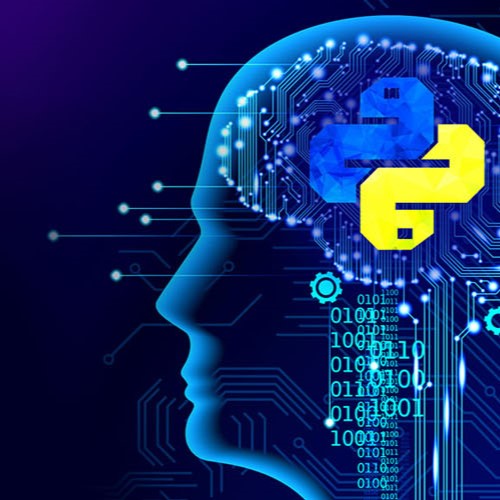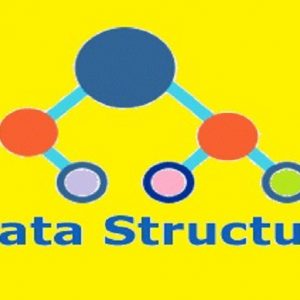Description
In this comprehensive course on Machine Learning (ML) and Artificial Intelligence (AI) with Python, participants will explore the fundamentals and advanced concepts of both fields. Designed for beginners and intermediate learners alike, it provides a solid foundation in Python programming while exploring the practical applications and theoretical underpinnings of ML and AI.
Key Learning Objectives:
- Python Fundamentals: Begin with a thorough introduction to Python, covering essential syntax, data types, control structures, functions, and object-oriented programming principles. Participants will gain hands-on experience through coding exercises and projects designed to reinforce their understanding.
- Introduction to Machine Learning: Delve into the core concepts of Machine Learning, including supervised and unsupervised learning paradigms. Explore popular algorithms such as linear regression, logistic regression, decision trees, and k-nearest neighbors (KNN). Learn how to evaluate model performance and choose appropriate metrics for different data types.
- Deep Learning and Neural Networks: Move beyond traditional Machine Learning techniques into Deep Learning. Understand the basics of neural networks, backpropagation, and gradient descent. Implement deep learning models using frameworks like TensorFlow and Keras for tasks such as image classification and natural language processing.
- AI Applications and Ethics: Examine real-world applications of AI across various industries, including healthcare, finance, and autonomous systems. Discuss ethical considerations surrounding AI deployment, bias in data, and responsible AI practices. Explore the societal impact of AI technologies and the importance of transparency and accountability.
- Advanced Topics: Dive into advanced topics such as reinforcement learning, generative adversarial networks (GANs), and transfer learning. Understand how these techniques solve complex problems and push the boundaries of AI research.
- Hands-on Projects: Throughout the course, participants will work on practical projects that reinforce their learning and showcase their skills in applying ML and AI techniques to real-world datasets. Projects may include building a recommendation system, creating a chatbot, or developing a predictive model for financial forecasting.
- Capstone Project: Culminate your learning journey with a capstone project where you will apply all the skills and knowledge acquired throughout the course to solve a significant AI or ML problem. This project showcases your proficiency and can be added to your portfolio to demonstrate your expertise to potential employers.
Who Should Take This Course:
- Aspiring Data Scientists: Individuals looking to break into the field of data science and build a strong foundation in machine learning and artificial intelligence.
- Software Engineers and Developers: Professionals seeking to expand their skill set and incorporate machine learning capabilities into their applications.
- Business Analysts: Analysts interested in leveraging AI techniques to derive insights from data and make data-driven decisions.
- Anyone Interested in AI and its Applications: Enthusiasts are curious about the latest advancements in AI technology and its impact on society.
Prerequisites:
- Basic programming knowledge (preferably in Python) is recommended but not required. The course will cover Python fundamentals as part of the curriculum.
- Familiarity with basic mathematics and statistics concepts (e.g., linear algebra, probability) will help you understand certain ML algorithms.
Course Format:
- Duration: The course is structured into modules, each covering specific topics with lectures, hands-on exercises, and projects.
- Delivery: Online lectures, interactive coding exercises, and real-world projects ensure a dynamic learning experience.
- Support: Participants will have access to a dedicated instructor and online community for assistance and collaboration.
Outcome:
By the end of this course, participants will have a deep understanding of Machine Learning and Artificial Intelligence concepts, proficiency in Python programming for data science applications, and the skills to tackle complex AI problems. Graduates will be well-equipped to pursue careers in data science, machine learning engineering, AI research, or further academic study in related fields.






Anas –
I have taken several online courses on Machine Learning before, but this one stands out for its clarity and depth. The instructors are experts in the field and their passion for AI is evident throughout the lectures. The support from the community and the practical nature of the assignments made learning enjoyable and effective.
Kolo –
As a software engineer transitioning into data science, I found this course incredibly valuable. The depth of coverage on Python programming and Machine Learning algorithms was impressive. The real-world projects helped me build a strong portfolio, and I now feel confident applying these skills in my career.
Ernest –
The course content was up-to-date and covered a wide range of topics in Machine Learning and AI. From classic algorithms to advanced deep learning techniques, everything was explained thoroughly with plenty of opportunities to practice coding. The capstone project was especially rewarding as it allowed me to showcase my skills in a meaningful way.
Francis –
This course was exactly what I needed to kickstart my journey into the world of Machine Learning and AI. The instructors explained complex concepts in a clear and engaging manner, and the hands-on projects were both challenging and rewarding.
Jeremiah –
I enrolled in this course with some background in statistics but limited programming experience. The instructors did a fantastic job of teaching Python from scratch and gradually introducing Machine Learning concepts. The practical examples and exercises were well-designed, and I appreciated the emphasis on understanding theory alongside hands-on application.